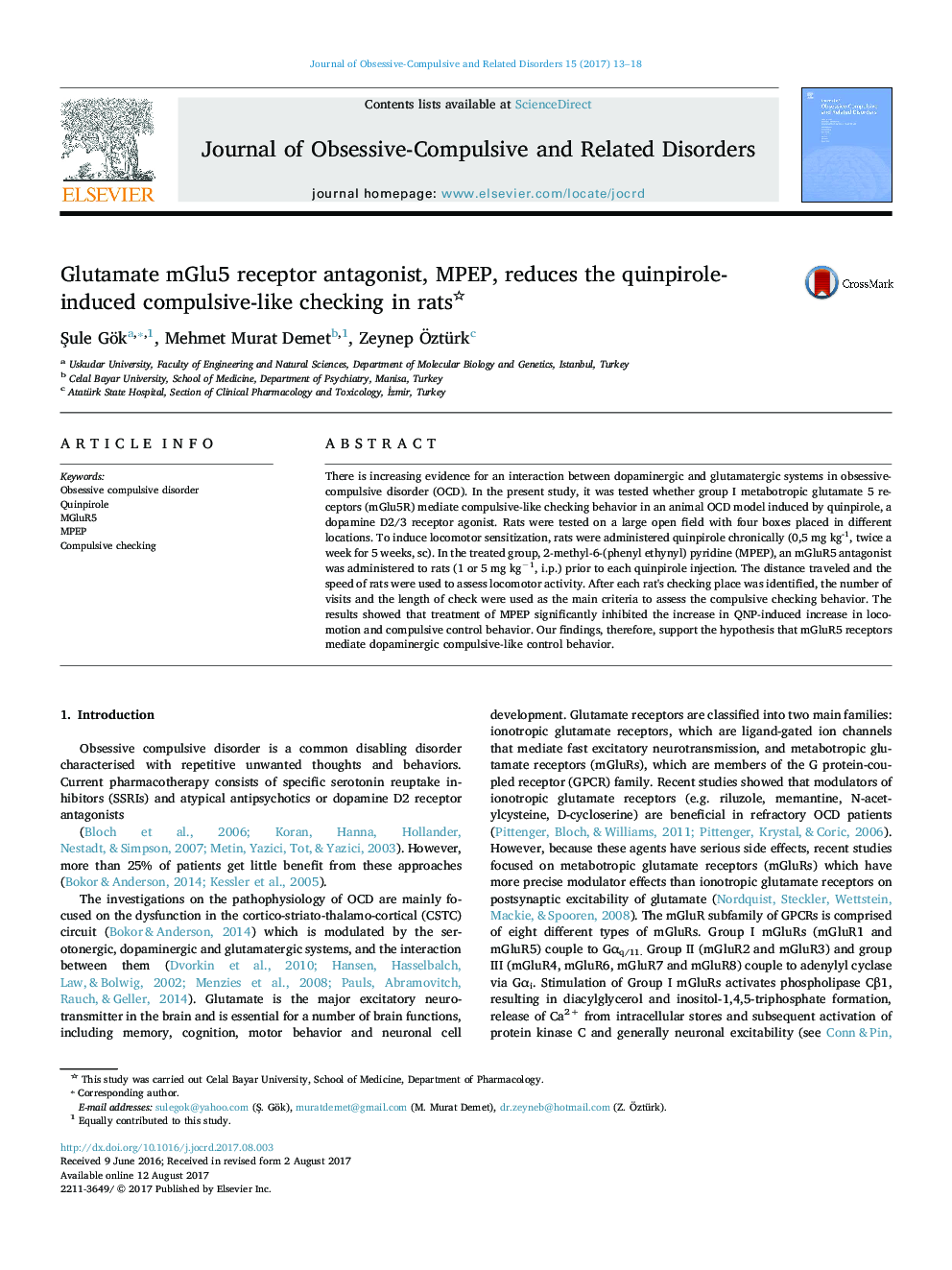| Article ID | Journal | Published Year | Pages | File Type |
|---|---|---|---|---|
| 5039275 | Journal of Obsessive-Compulsive and Related Disorders | 2017 | 6 Pages |
â¢This study may lead to the development of new therapeutic approaches for obsessive compulsive disorder.â¢This is the first study showing the beneficial effect of MPEP on the control of compulsive checking behaviours of rats.
There is increasing evidence for an interaction between dopaminergic and glutamatergic systems in obsessive-compulsive disorder (OCD). In the present study, it was tested whether group I metabotropic glutamate 5 receptors (mGlu5R) mediate compulsive-like checking behavior in an animal OCD model induced by quinpirole, a dopamine D2/3 receptor agonist. Rats were tested on a large open field with four boxes placed in different locations. To induce locomotor sensitization, rats were administered quinpirole chronically (0,5 mg kg-1, twice a week for 5 weeks, sc). In the treated group, 2-methyl-6-(phenyl ethynyl) pyridine (MPEP), an mGluR5 antagonist was administered to rats (1 or 5 mg kgâ1, i.p.) prior to each quinpirole injection. The distance traveled and the speed of rats were used to assess locomotor activity. After each rat's checking place was identified, the number of visits and the length of check were used as the main criteria to assess the compulsive checking behavior. The results showed that treatment of MPEP significantly inhibited the increase in QNP-induced increase in locomotion and compulsive control behavior. Our findings, therefore, support the hypothesis that mGluR5 receptors mediate dopaminergic compulsive-like control behavior.
